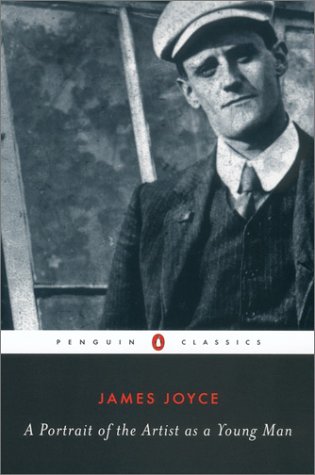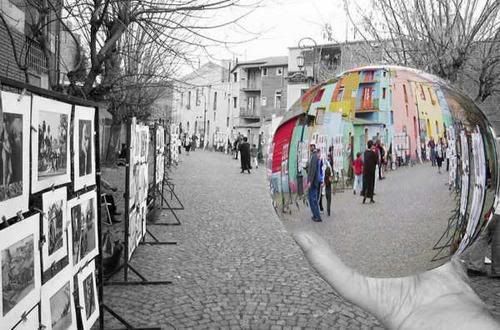
In a Portrait of the Artist as a Young Man, by James Joyce there were two passages that were distinctive to my focus of fire. In the passages that I chose both of them insinuate that when James Joyce writes about fire there are certain desires that the characters are attempting to release, also in those passages those fiery desires end up adding on to something negative or sinful. The sudden burst’s of fiery desires causes the characters in the book to do things that follow with negative outcomes. The outcomes in the situations are noticed and sometimes they are ignored. Stephen realizes that those experiences are not going to be accepted and that it makes him feel sick and at times selfish. Stephen through both passages clearly shows the reader that he is struggling with the acceptance from his society and all that influences his interpretation of his life and everyone else around him.
In this first passage of chapter one, James Joyce writes about how theses groups of boys were able to go into the church and steal some money and how they also stole some holy wine that is used for their holy mass. Stephen in this passage is listening to some boys’ gossip about what happened, while they are in the presence of the church. Stephen struggles with his fiery side that pesters him to satisfy his passions and then there is this other side of him that wants him to do the good and pure things in life to satisfy the society. In the first few sentences of the passage the boys discuss what happened that day, “But Why did they run away, tell us I know why, Cecil Thunder said. Because they had fecked the cash out of the rector’s room. Who fecked it? Kickham’s brother. And they all went shares in it. But that was stealing. How could they have done that? A fat lot you know about it, Thunder! Wells said. I know why they scut. Tell us why. I was told not to, Wells said. O, go on, Wells, all said. You might tell us. We won’t let it out. Stephen bent forward his head to hear. Wells looked round to see if anyone was coming. Then he said secretly: You know the altar wine they keep in the press in the sacristy? Yes. Well, they drank that and it was found out who did it by the smell. And that’s why they ran away, if you want to know. And the fellow who had spoken first said: Yes that’s what I heard too from the fellow in the higher line”(49). In the first part of the passage the boys are just explaining how the boys stole the money and the wine for their own enjoyment. James Joyce is almost making these characters sound like older mature people through context, they do not sound like children just gossiping they seem almost more sophisticated in nature, they are fearing no one. Also, the boy’s who stole the wine were doing it purely to satisfy their desires that are coming from their ID’s.
In the next part of the chapter one passage, James Joyce describes Stephen almost like a child because he is recalling his memories of his childhood where he helped out the church in the summers by carrying the incense to the altar. Stephen is also intimidated when they talk about these boys, he is afraid to express how he feels about the situation, “The fellows were all silent. Stephen stood among them, afraid to speak, listening. A faint sickness of awe made him feel weak. How could they have done that?..He remembered the summer evening he had been there to be dressed as boatbearer, the evening of the procession to the little altar in the wood. A strange and holy place”(49). In this passage James Joyce wants the reader to notice his emphasized “listening.” Stephen did not want to add anything to the conversation because he was afraid of what his classmate’s reactions would be. Stephen also does not understand how they were able to steal money and wine from the “holy place,” it made him feel sick just thinking about why those boys listened to their fire of desire to purify or release the urges, plainly to satisfy their own wants. The wine that was stolen or the “blood of Christ” was stolen for their own enjoyment and that makes Stephen feel sick, the outcome was negative because the things that were stolen were not in anyway theirs and they had no right to walk into a holy place and steal something that meant so much to the people of the church.
In the next passage from chapter two, James Joyce describes an experience that Stephen is facing, the moment almost seems like a dream or Stephen’s imagination. In the passage it’s basically Stephen’s desires slowly burning inside him and forcing him to satisfy his desire of lust. James Joyce makes him seem like the desire is torturing him and this moment is unbearable for Stephen. “Such moments passed and the wasting fires of lust sprang up again. The verses passed from his lips and the inarticulate cries and the unspoken brutal words rushed forth from his brain to force a passage”(98). The imagery in this passage is magnificent, James Joyce describes the inability to release himself verbally, the “brutal” words were in his brain but he was unable to release them because his lips and his voice wouldn’t let him. Following the struggle of speaking, his whole body was suffering also, “His blood was in revolt… He stretched out his arms in the street to hold fast the frail swooning form that eluded him and incited him: and the cry that h had strangled so for so long in his throat issued from his lips”(98). When James Joyce describes this passion he has to release the sounds from his throat and Stephen having to spread his arms apart to control himself that position with his arms almost seems to show how Stephen struggles to still be holy by imitating Christ, when he was being nailed to the cross. Stephen is struggling to go either the holy way; which is to stop from envisioning his desire for lust and release himself or to stop and control himself because it is sinful. In the last part of the passage Stephen is confiding with his ID, “ It broke from him like a wail of despair from a hell of sufferers and died in a wail of furious entreaty, a cry for an iniquitous abandonment, a cry which was but the echo of an obscene scrawl which he had read on the oozing wall of a urinal”(98). Stephen’s blood comes up a lot in the book especially when he talks about his death and his funeral. The connection with my topic is that they are both the same color, red. Fire tends to be red when it is not that hot, and blood turns red when exposed to oxygen. One sentence in the passage says “It broke from him like a wail of despair from a hell of sufferers,” has a connection with the negative outcomes that lead to his situation and the topic of fire. For example, James Joyce is associating fire with hell, comparing How Stephen suffers, he is suffering the same torture that those would be suffering down in the fiery depths of hell. Fire is very closely related to religion, Stephen thinks that church views him as a sinner, he thinks he would be sent down to hell for not listening to their laws and their Society.
Overall, the passages both demonstrated how these viscous bursts of desires each influence some outcome that is eventually damaging to Stephen or to his society. What James Joyce is trying to tell the reader is that these selfish outbursts of the ID will damage your environment but if not released with slowly burn you internally. The topic of fire usually is brought up to demonstrate a negative idea or situation. It also connections to the topic of religion and that it something that Stephen is actively involved in and has a passion for, to some point.
Thursday, March 20, 2008
"A Portrait of the Artist as a Young Man" Strand
Labels: Analysis (Formal Essay), Portfolio
Subscribe to:
Post Comments (Atom)



1 comments:
Although this piece was not my best piece, I believe that I did have very good ideas and theories about the strand in the book. My strand was fire and the book did speak a lot about the strand but I think that the book was very difficult to translate into my own thoughts without going too far away from the author's purpose. Overall, the piece I felt was an achevement in it's own way.
Post a Comment